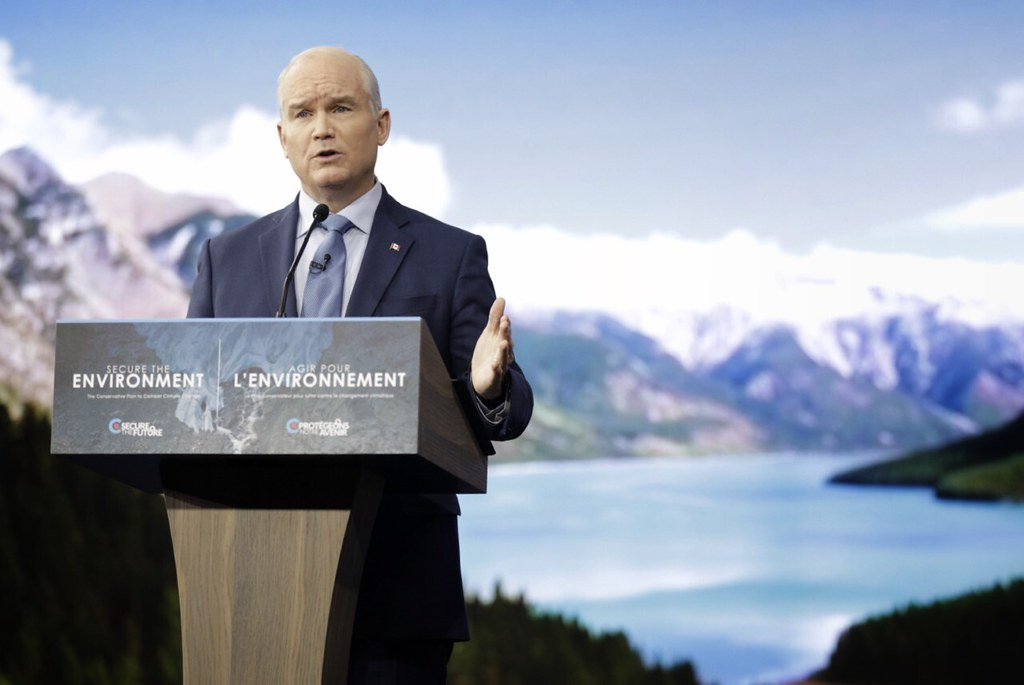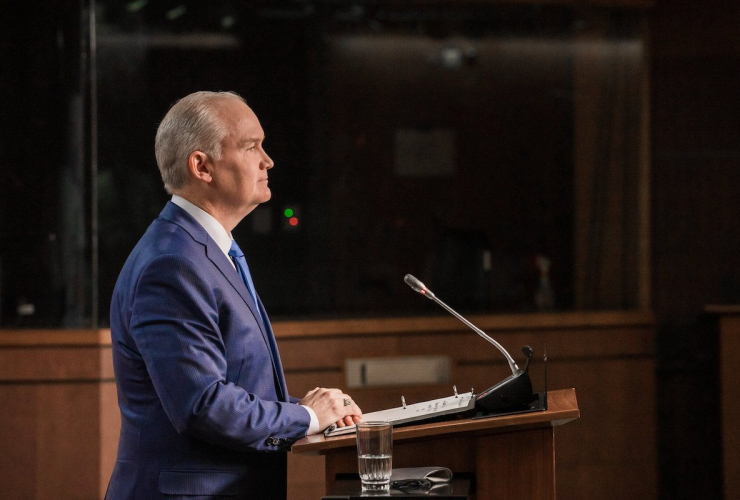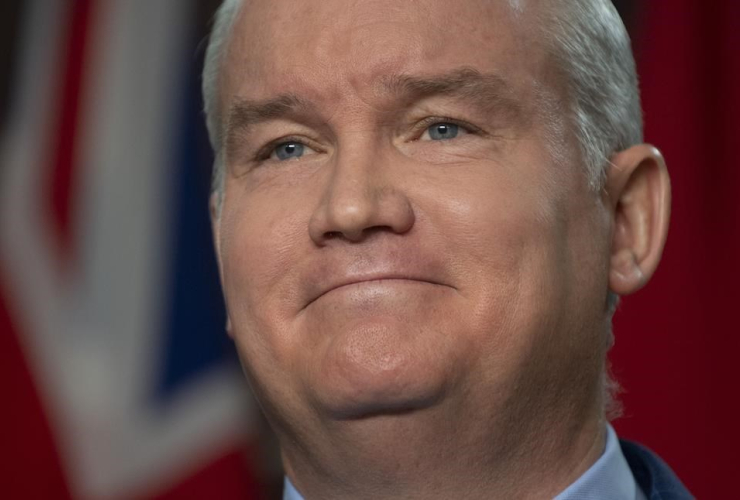The Conservative Party of Canada’s new carbon-pricing plan may not have swayed voters in the way it had hoped, with new data from Angus Reid showing the move makes one in five Conservative voters say they are less likely to opt for the party.
The Conservatives, who have long opposed the Liberal government’s carbon-pricing program, say they will put a price on carbon — but it will not be a tax. Rather, Conservative Leader Erin O’Toole said Canadians would see a loyalty-program approach, where a levy charged on fuel would be put into a savings account that could be used to purchase greener products later. Announced in April, the plan would include a $20-per-tonne levy on greenhouse gas emissions; the charge would increase to a maximum of $50.
Greenpeace Canada said not only will the personal savings account be confusing, but it will be difficult to administer. At the same time, the group said the Conservative Party knows it can’t get elected without a climate change plan.
“The Conservatives are proposing a weaker, more bureaucratic carbon-pricing system that shifts money from the poor to the rich, while disingenuously claiming to be on the side of workers and against big government,” said Keith Stewart, senior energy strategist for the organization.
Although the Angus Reid Institute’s data says while the carbon-pricing program made 19 per cent of 2019 Conservative voters say they are less likely to vote for the party in the next election, other groups reported the opposite. A small number of people on the left said the party’s plan to put a price on carbon emissions makes them consider voting Conservative, while 19 per cent of Bloc Québécois supporters say the move makes them more likely to vote Tory next election.
Dave Korzinski, research director for the institute, says the data highlights the division among Conservative voters when it comes to climate change. He sees the new policy being a balancing act — the party is trying to be more progressive by entering the climate change conversation while holding onto the party’s traditional values.
“There are these challenging elements ideologically, where it's hard to have a very conservative carbon tax plan when the Liberals have kind of cornered the market on taxing and returning to Canadians and investing in green energy,” said Korzinski.
“... And the fact that one in five voters say that they're actually less likely to consider the party is certainly a challenge when they got 34 per cent of the vote (in 2019) and are trying to grow the base rather than lose people.”
Ontario and Quebec are the places Conservatives need to garner votes in the upcoming election, says Korzinski, so the Bloc Québécois support could be a good sign. Overall, Korzinski said the poll actually showed a slight win for the Conservatives: eight per cent of overall past voters said they’d be more likely to consider the party and 36 per cent of Conservatives reported the plan makes them more likely to support the party come next election.
However, Korzinski said it comes down to the intensity of response. Few people said the plan makes them much more likely to support the party.
“That's very few people who actually say that they're much more likely to support them: six per cent of Bloc Québécois supporters versus 10 per cent of Conservatives who say that they're much more likely to not consider the party in the next election,” he said.
In terms of what the opposition had to say about the findings, the Environment and Climate Change Canada office said O'Toole's plan would lead to more pollution — which voters don’t want.
“That is why we are putting a price on pollution and more money in the pockets of families through the Climate Action Incentive rebate such that the majority of families receive more money back,” the office said in a statement to Canada’s National Observer.
“After decades of saying that putting a price on pollution was the wrong approach, it is fair for Canadians of all political stripes to be skeptical about Erin O’Toole’s carbon tax that is less effective at cutting pollution and more costly for hard-working families.”
NDP House leader Peter Julian said he sees the poll findings as younger Canadians showing they prioritize climate change policy, regardless of party.
“I think what that ends up being is just a kind of a sterile debate within the Conservative Party over the reality of climate change, which is why the Conservatives are now in third place among younger voters under 35,” he said. “And that’s fading quite dramatically … in both of the older parties, their inability to resolve their contradictions around climate change is something that ultimately, I believe, will cost them electorally.”
Canada’s National Observer reached out to the Green Party for comment, but it did not provide a statement by deadline.
The online survey, paid for by Angus Reid, was done April 20 to April 25 among a representative randomized sample of 2,008 Canadian adults who are members of Angus Reid Forum. A probability sample of this size has a margin of error of plus or minus 2.2 percentage points, 19 times out of 20.
Cloe Logan / Local Journalism Initiative / Canada’s National Observer
PR maneuvers while the planet
PR maneuvers while the planet burns?? What's conservative about that? Sounds like a kind of radical death wish to me.






Comments